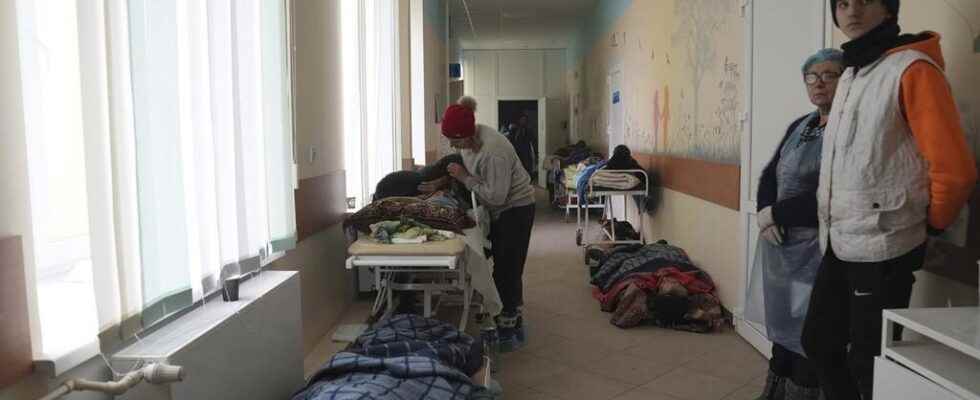Ukraine claims several hundred prisoners of war and Russia more than 6,000. Prisoners of war who sometimes constitute a bargaining chip in the conflict. Among them, Moscow has a hundred caregivers captured at the fall of Mariupol. Mostly women who worked in the Mariupol military hospital. In Ukraine, their relatives warn about their conditions of detention and demand their release.
It is a mosaic of photos distributed online: we see the portraits of eighty women. They are doctors, nurses, surgeons. All treated the wounded in the military hospital of Mariupol until the fall of the city.
” Unfortunately, I don’t really know where Olena is. »
Andrii Kryvtsov lost contact with his sister-in-law almost four months ago. On April 12, Olena, a 27-year-old surgical assistant, was captured by the Russians with the staff of the military hospital. Then taken to a prison on the other side of the border.
” On May 6, a young doctor was exchanged, she informed us that she had found herself at some point with Olena and other detainees and that they were in Taganrog prison. There, they were 2 to 6 per cell. But from 6 a.m. to 10 p.m. they were forbidden to go near the bed, which means that they were constantly standing. They were told that no one wanted them and they were made to memorize and sing the Russian anthem. The psychological pressure is constant. »
But Andrii also appeals to the international community. Neither his sister-in-law nor the other caregivers carried weapons, so they cannot be considered combatants. He asks Westerners to put pressure on Russia to obtain their release. “ This is a violation of the Geneva Convention. Russia or any state cannot detain civilians and doctors, they must simply be released. »
Before her arrival in the prison, Olena went through a transit camp where the conditions were terrible: at night the music was turned on very loudly for them so that they could not sleep, there were 13 of them in a cell for 2 people. The toilets were broken there was no hygiene, they couldn’t take baths or showers, it was really terrible.
Andrii Kryvstov, brother-in-law of Olena
